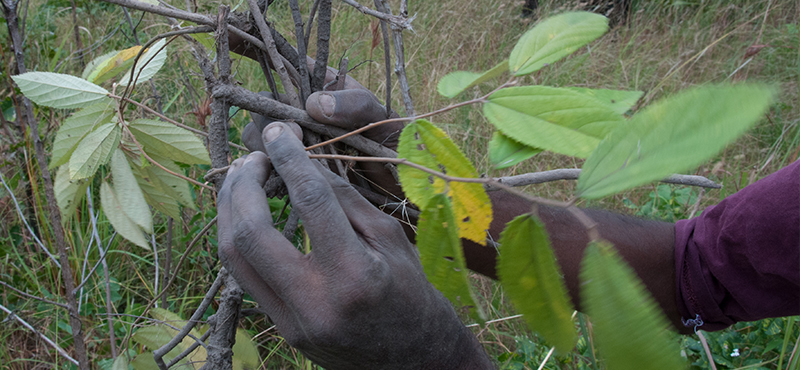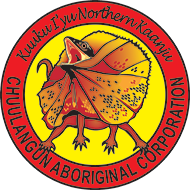The opportunity
Aboriginal Peoples were the first to research and understand the effects of Australian plants, with thousands of years of accumulated knowledge about their properties and how to best to use them. However, most Western scientific research into endemic Australian plants has been driven by universities and pharmaceutical companies, and has led to them becoming the sole beneficiaries of any research output or commercialisation.
How can the traditional knowledge from Aboriginal Peoples be used to bring benefit back to community, while also improving health outcomes?
The solution
A long-term partnership between UniSA researchers and Chuulangun Aboriginal Corporation is leading the way in understanding the healing potential of plant species used in Aboriginal medicine, while also creating a model for equitable partnerships and benefit sharing between Aboriginal and Western scientific researchers.
Chuulangun Aboriginal Corporation represents the traditional owners of the Kuuku I’yu Northern Kaanju homelands on the Cape York peninsula in Queensland. Their extensive ecological knowledge, along with their deep understanding of the genealogical ties to country, have allowed the project to weave together both Aboriginal and Western scientific knowledge.
UniSA’s team led by Dr Susan Semple, along with Aboriginal Traditional Custodians of the land, have worked together to extract and examine samples of the uncha plant (Dodonaea polyandra), leading to the discovery of unique anti-inflammatory properties. Extraction techniques have relied on traditional knowledge and expertise in harvesting techniques, locations and seasons. As a result, a patent for these anti-inflammatory compounds was jointly granted to UniSA and the Chuulangun Aboriginal Corporation, with a key Kuuku I’yu Northern Kaanju ancestor named as an inventor. As part of the ongoing project the team is also investigating other food and medicinal plants.
Additional benefits have included collaborative publications and conference presentations, leading to increased awareness of issues around recognition of Aboriginal knowledge and historical perspectives on Aboriginal health.

UniSA’s Dr Susan Semple says that locally driven research gives traditional knowledge holders opportunities to remain on homelands, and develop sustainable business opportunities.
“I hope that this work will continue to provide opportunities for Aboriginal custodians to manage and direct research on their land and receive ongoing income from the intellectual property of their heritage, as well as support the passing down of traditional plant knowledge from Elders to younger generations.”
This pioneering partnership is also investigating Australian plant compounds that may help to treat chronic diseases such as diabetes, cardiovascular disease and chronic infections, which are significant contributors to poor health for both Indigenous and non-Indigenous people alike.
Built on equal and mutual benefit, the partnership is a groundbreaking model for blending Western and traditional scientific perspectives and creating ongoing opportunities for Aboriginal Custodians, and inspiring future discovery and development of medicinal products from Australia’s unique plants.
Partners involved

Related services
Contact the Enterprise Hub
Get in touch with us to find out how we can support your business needs.
Make an enquiry online or call us to discuss your idea



